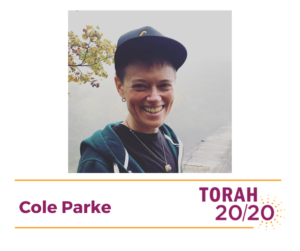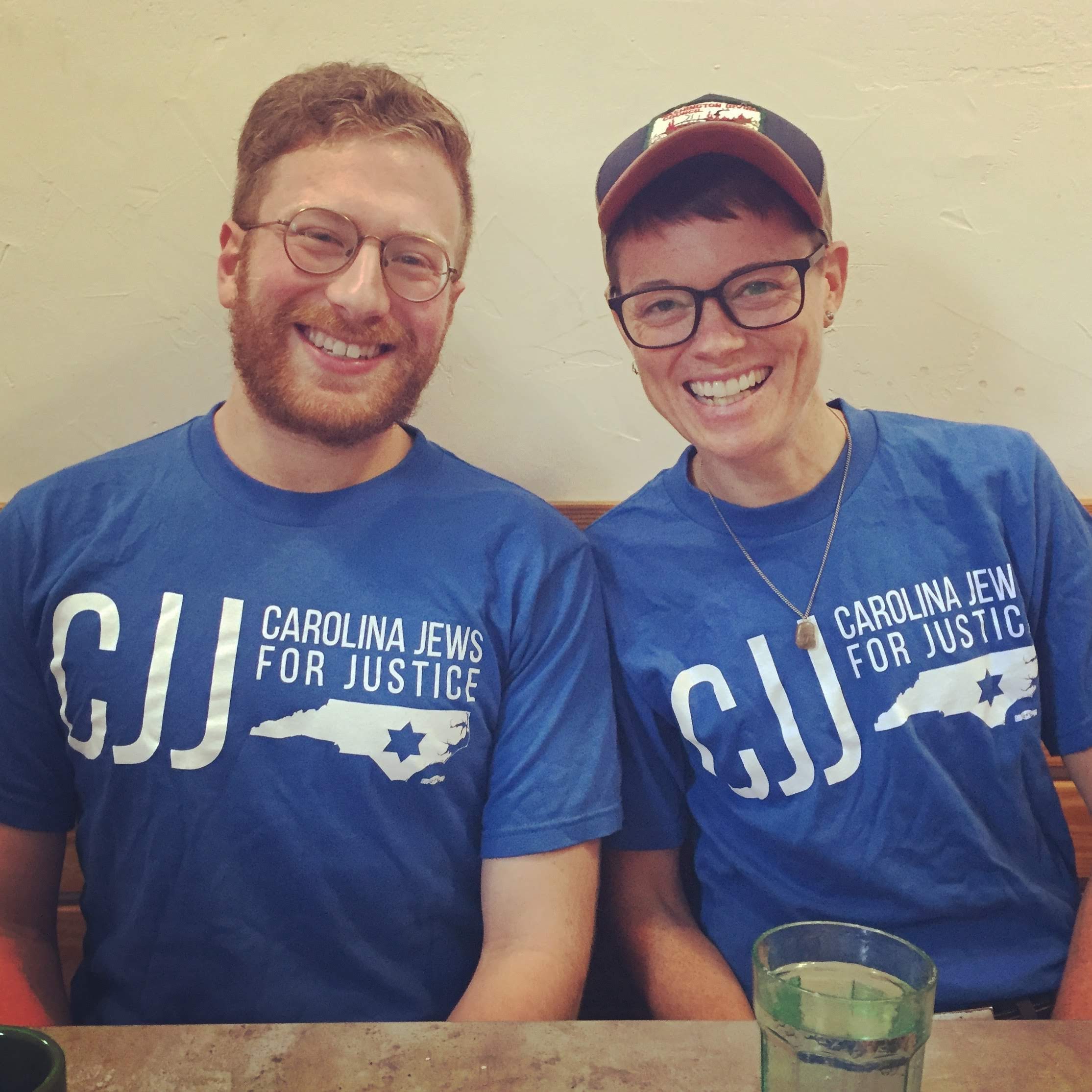A d’var Torah for Emor from community organizer Cole Parke.
Coming out is a defining experience for most every queer person I know. This month marks 15 years since I first shared that part of myself publicly, and these days it’s a deeply integrated part of my identity — something that is far from secret, and now a source of tremendous joy and pride rather than shame.
Nonetheless, I still find it necessary to “out” myself on a regular basis — not as a queer and trans person, but rather as a non-Jew. You see, even though I work as a community organizer with a Jewish justice organization, I’m not actually Jewish. I’m experienced and practiced enough to avoid the cultural blunders that might make my outsider status immediately obvious, but I’ve learned throughout my life that it’s deeply important to always be transparent about who I am and who I’m not. Honesty is foundational to trust, and trust is essential to the brave and vulnerable process of building community across difference and strengthening the bridges of solidarity that unite us and keep us safe.
Parashat Emor is dominated by a whole collection of rules about the priesthood and the holiday cycle — tools that are ideally designed to facilitate community health and cohesion. Then, at the tail end of the text, there’s a brief (and highly dramatic!) story about a young man who commits blasphemy. Moses seeks out God’s guidance on the matter, and after prescribing the man’s punishment (death by stoning, of course), God elaborates, “You shall have one standard for stranger and citizen alike: for I the ETERNAL am your God.” (Leviticus 24:22)
The man who is ultimately killed in this story is never named, but the text reveals one detail about him: his mother was an Israelite, and his father was an Egyptian. He is identified as a “half-Israelite,” labeling him as both a stranger and a citizen.
Sign up to receive Torah 20/20 in your inbox each week.
On the one hand, as someone who’s often a stranger, I appreciate the inclusivity of this approach, and as the youngest of three kids and a stickler for fairness, I’m grateful to know that God is just as opposed to double standards as my younger self was. But the thing about rules (and their corresponding consequences) is that they’re generally crafted by the people in power.
Christian culture, beliefs, values, and expectations have been baked into U.S. history from the beginning, but now more than ever, those “norms” are increasingly being imposed rather than simply assumed. As someone who was raised Christian, I was oblivious to the dynamics of Christian hegemony for a long time — simply put, the greatest privilege of being privileged is the ability to ignore the fact that you’re privileged. The rules were designed for me, so they never really bothered me.
But that became a lot less true after I came out.
Find more commentaries on Parshat Emor.
While there are plenty of Christians who accept and affirm LGBTQ people, the dominant narrative still says that queerness is antithetical to Christianity. So when you decide to come out while preaching a sermon at your Christian college in Texas, all those cultural and ethical “norms” start to feel pretty uncomfortable pretty quickly.
Fortunately, discomfort is an incredibly powerful teaching tool, and as a community organizer, one of my most important jobs is to invite people to lean into discomfort — to examine the ways in which rules that work for them might not work for everyone; to question “norms” and acknowledge privileges; to make mistakes and not give up; to listen to what hurts and commit to the work of healing.
Because if we hope to contend for a better, more just and equitable future, it’s critical for us to be doing the brave and vulnerable work of building community and practicing solidarity with “strangers and citizens alike.” And then we have to fight for each other like our own freedom depends on it — because it does.
Cole Parke is a statewide community organizer for Carolina Jews for Justice, dedicated to building a powerful progressive Jewish justice movement in the South. They previously worked as a Research Analyst at Political Research Associates, a social justice think tank dedicated to tracking, analyzing, and exposing the Right Wing.

